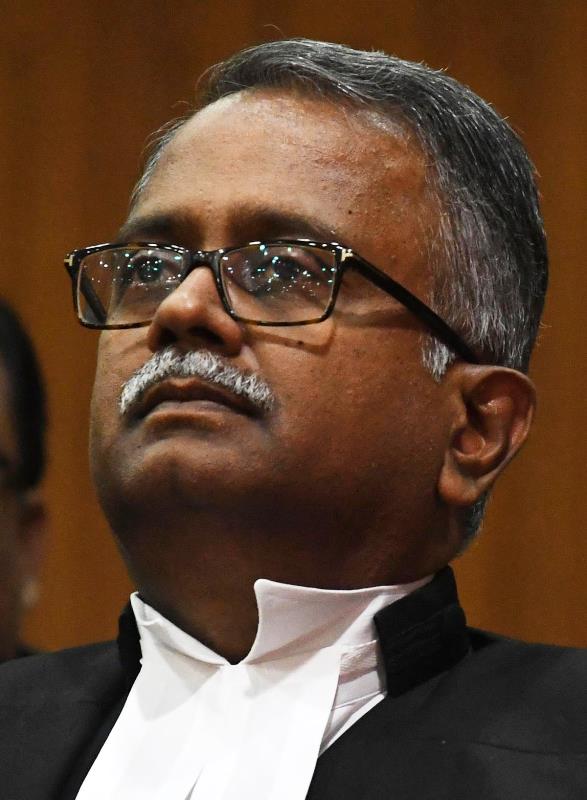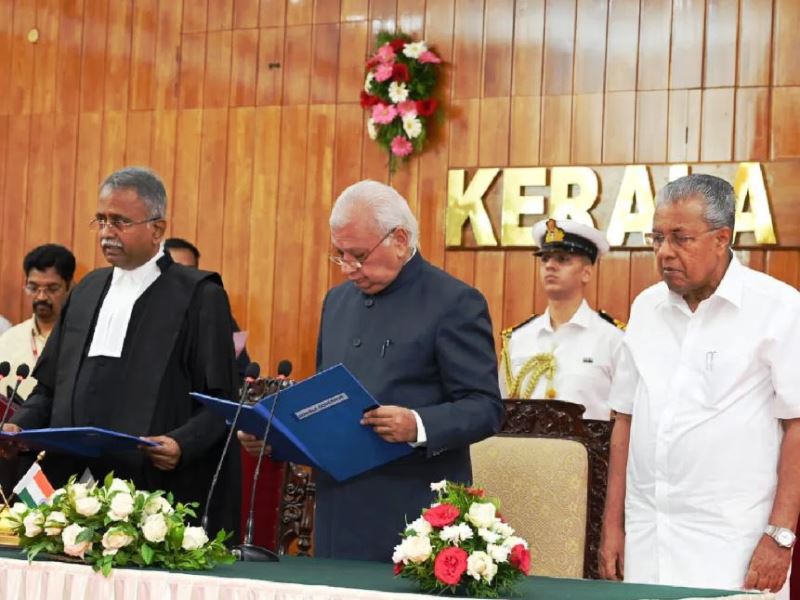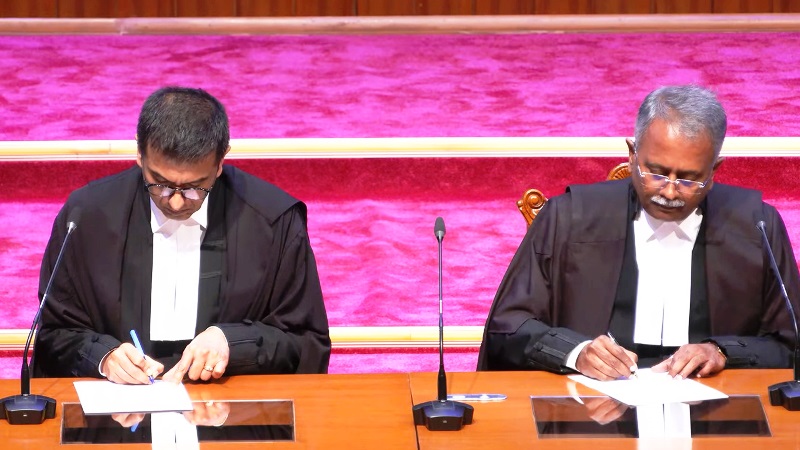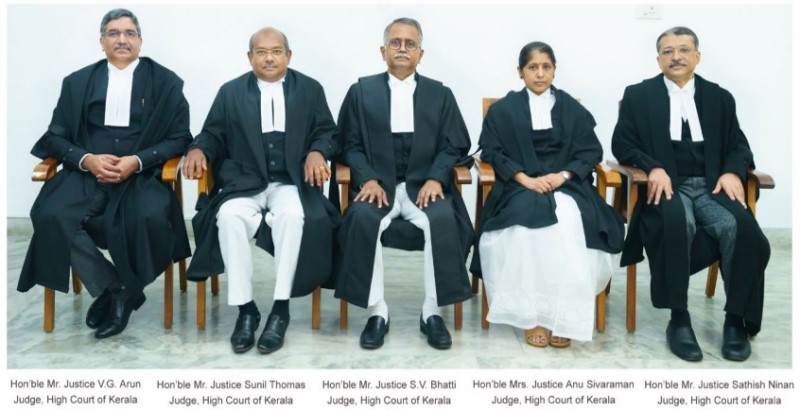Justice SV Bhatti Age, Wife, Family, Biography & More
Quick Info→
Wife: Anupama Bhatti
Hometown: New Delhi
Age: 61 Years
| Bio/Wiki | |
|---|---|
| Full name | Sarasa Venkatanarayana Bhatti [1]The Indian Express |
| Profession | Judge of Supreme Court of India |
| Physical Stats & More | |
| Eye Colour | Black |
| Hair Colour | Salt & Pepper |
| Judicial Service | |
| Designation(s) | • Judge of Supreme Court of India (assumed office on 14 July 2023) • Chief Justice of Kerala High Court (1 June 2023 – 13 July 2023) • Acting Chief Justice of Kerala High Court (24 April 2023 – 31 May 2023) • Judge of Kerala High Court (19 March 2019 – 23 April 2023) • Judge of Andhra Pradesh High Court (12 November 2013 – 18 March 2019) |
| Notable Judgement(s) | As Chief Justice of Kerala High Court • Women Unwilling To Work at Night Can’t Be Denied Promotion: In 2019, Justice SV Bhatti considered a petition filed by Jancy KF and 14 other workers of Kerala Lakshmi Mills at Pullazhi in Thrissur regarding a notice issued by the management of the company stating that women employees who are not willing to do night shifts won’t be given permanent appointment, promotion, seniority, etc. The petitioners argued that Kerala Lakshmi Mills was a branch of the National Textile Corporation (NTC) and that the NTC's service regulations did not include working night shifts as a prerequisite for seniority or equal opportunities for advancement. After reviewing the petition, the court held that the condition mentioned in the notice could not be considered a criterion for determining the employees' service conditions, including seniority or promotion. • The Principle of Res Ipsa Loquitor Will Apply In Cases of Medical Negligence: In 2020, a bench consisting of Justices SV Bhatti and Bechu Kurain Thomas held that the principle of 'res ipsa loquitur' would be applicable in cases of medical negligence when a patient experiences an unforeseen complication that is not typically expected in the case of M/s. PRS Hospital & Anr. vs. P. Anil Kumar. Res ipsa loquitur is a legal principle present in common law that allows a court to deduce negligence from the inherent nature of an accident or injury when there is a lack of direct evidence regarding the defendant's conduct in a tort litigation scenario. The Kerala High Court addressed a particular case involving a 29-year-old man who suffered paralysis and hearing loss after undergoing surgery for the removal of kidney stones. • Nuns and Priests In Teaching Jobs Are Liable To Pay Tax: In 2021, a division bench comprising of Justices SV Bhatti and Bechu Kurian Thomas considered a series of appeals filed by nuns and religious congregations challenging a verdict issued by a single bench. The verdict stated that tax deducted at source (TDS) should be withheld from the salaries of nuns and priests working in educational institutions. Until 1944, TDS was not being deducted from their salaries. The appellants contended that since the salaries earned by nuns and priests are handed over to their congregations as they have taken a vow of poverty, TDS should not be applicable to them. In response, the court clarified that the tax deduction is not contingent upon how the income is utilized. The appellants then argued that, according to Canon Law, they undergo a concept called 'civil death' due to their vow, and therefore, they should not be considered 'persons' under the Income Tax Act. In reply, the court ruled that the Income Tax Act does not recognize the concept of civil death. • Muslims of All Sects Are Entitled To Offer Prayers In Any Mosque And Bury Their Dead In Public Burial Grounds: In June 2022, a division bench led by Justices SV Bhatti and Basant Balaji ruled that a congregation known as Jama-ath is not allowed to prohibit Muslims from different sects from performing prayers in the mosque or burying their deceased in the public burial ground, located on their property. This judgment was made in the case of Elappully Erancheri Jama-Ath Palli & Anr v. Mohammed Haneef & Ors. |
| Personal Life | |
| Date of Birth | 6 May 1962 (Sunday) |
| Age (as of 2023) | 61 Years |
| Birthplace | Madanapalle, Chittoor, Andhra Pradesh |
| Zodiac sign | Taurus |
| Signature | 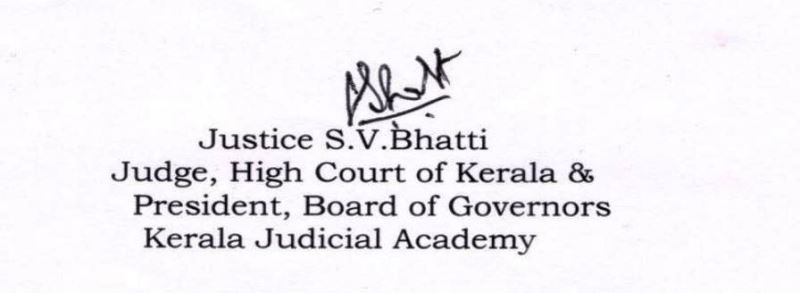 |
| Nationality | Indian |
| Hometown | New Delhi |
| College/University | Jagadguru Renukacharya College, Bangalore |
| Educational Qualification | A bachelor’s degree in law [2]India Legal |
| Religion | Hindusim [3]Ernakulathappan Temple Complex – YouTube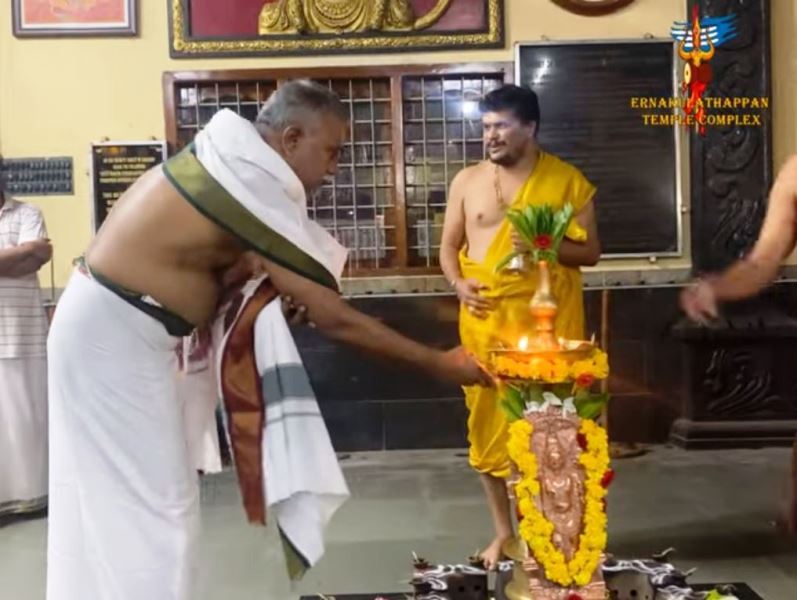 Note: SV Bhatti is an adherent follower of Lord Hanuman. He regularly visits the Hanuman Kovil temple in Ernakulam, Kerala. In 2022, he became a part of the temple’s monthly Deepa Aradhana. |
| Relationships & More | |
| Marital Status | Married |
| Family | |
| Wife/Spouse | Anupama Bhatti (homemaker) |
| Children | Son- None Daughter(s)- Vishnavi Bhatti, Akhila Bhatti |
| Parents | Father- Ramakrishnaiah Mother- Annapurnamma |
Some Lesser Known Facts About Justice SV Bhatti
- SV Bhatti is a Judge of Supreme Court of India. Previously, he was the Chief Justice of Kerala High Court. He has served as a Judge of Andhra Pradesh High Court (2013-2019) and Judge of Kerala High Court (2019-2023).
- On 21 January 1987, Justice Bhatti became a member of the Bar Council of Andhra Pradesh and began practising law in the High Court of Andhra Pradesh, Hyderabad.
- Throughout his career, he held various positions, including serving as the standing counsel for organizations such as Hindustan Shipyard, Andhra Pradesh Pollution Control Board, Indian Maritime University, Bharat Heavy Electricals Limited, Bharat Electronics, BHPV, and RSVP. From 2000 to 2003, he also served as the Special Government Pleader. He specialized in environmental laws and had a keen interest in civil laws, labour and industrial laws, and constitutional matters.
- On 12 April 2013, he was elevated to the position of Additional Judge of the High Court of Andhra Pradesh.
- In 2014, the state of Andhra Pradesh was divided to form the new state of Telangana. This led to the establishment of the High Court of Judicature at Hyderabad for the States of Telangana and Andhra Pradesh. Justice Bhatti continued to serve as a judge at the High Court of Judicature in Hyderabad until the establishment of the High Court of Andhra Pradesh in Amaravathi on 1 June 2014. He then served at Amaravathi until 18 March 2019, following which he was transferred to the Kerala High Court.
- During his tenure as a judge of the Kerala High Court, Justice Bhatti delivered significant judgments on various matters, including the registration of vehicles in Puducherry for tax benefits, the collection of tax deducted at source (TDS) from the income of nuns, the power of the State government to regulate the sale of lottery tickets issued by other States, and the 101st Constitutional amendment on GST.
- He has served as the Chairman of the Kerala High Court Legal Services Committee.
- He was appointed as the Chief Justice of Kerala High Court on 1 June 2023, and he served in this capacity till 13 July 2023.
- Justices Ujjal Bhuyan and SV Bhatti were sworn in as Supreme Court judges on 14 July 2023 taking the working strength of the top court to 32. Chief Justice of India DY Chandrachud administered the oath of office to the two judges at a function held in the Supreme Court which was attended by other judges and members of the bar.
- He has served as President of Board of Governors Kerala Judicial Academy.
- His retirement is due on 5 May 2027.
References/Sources:

